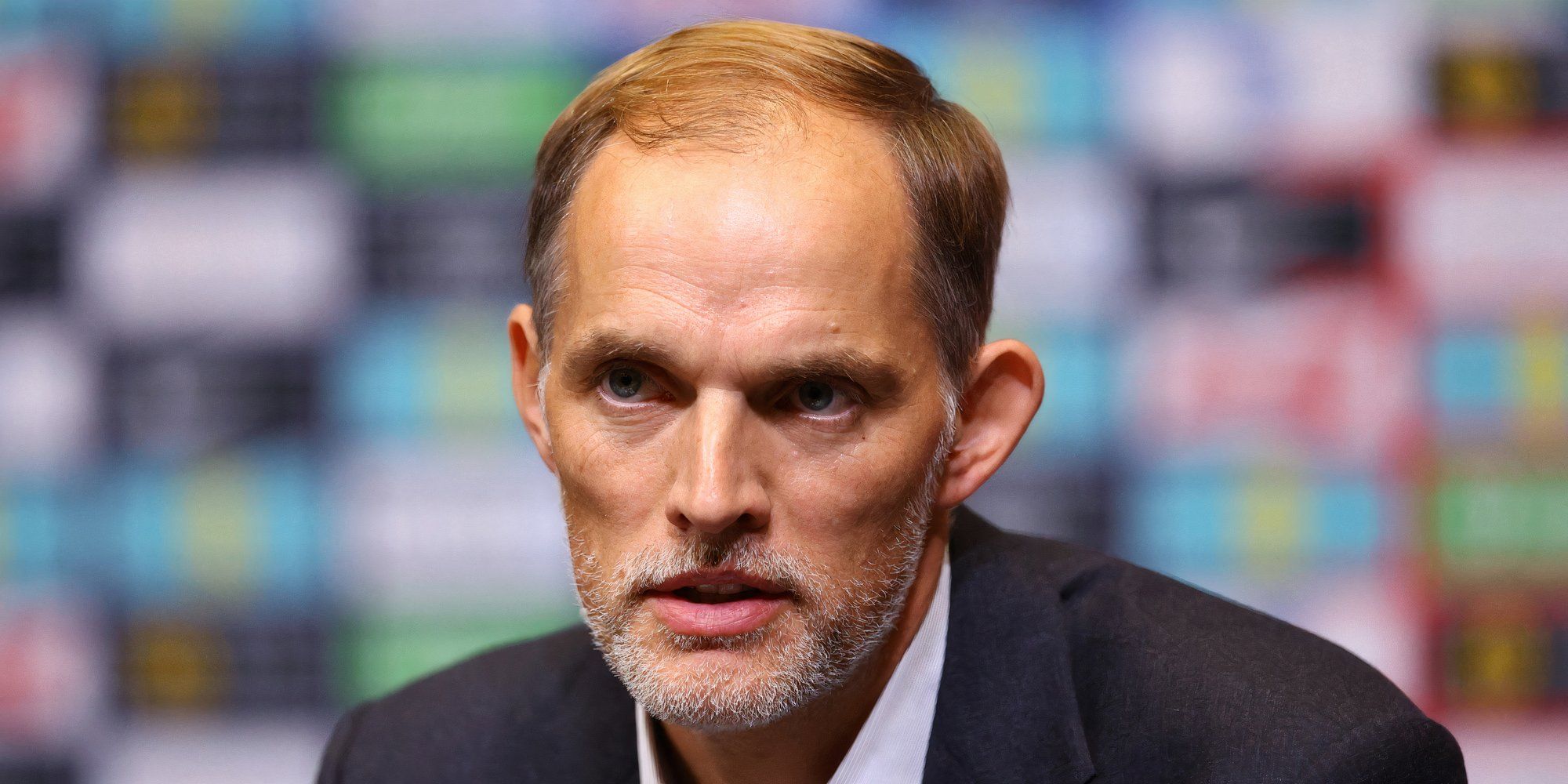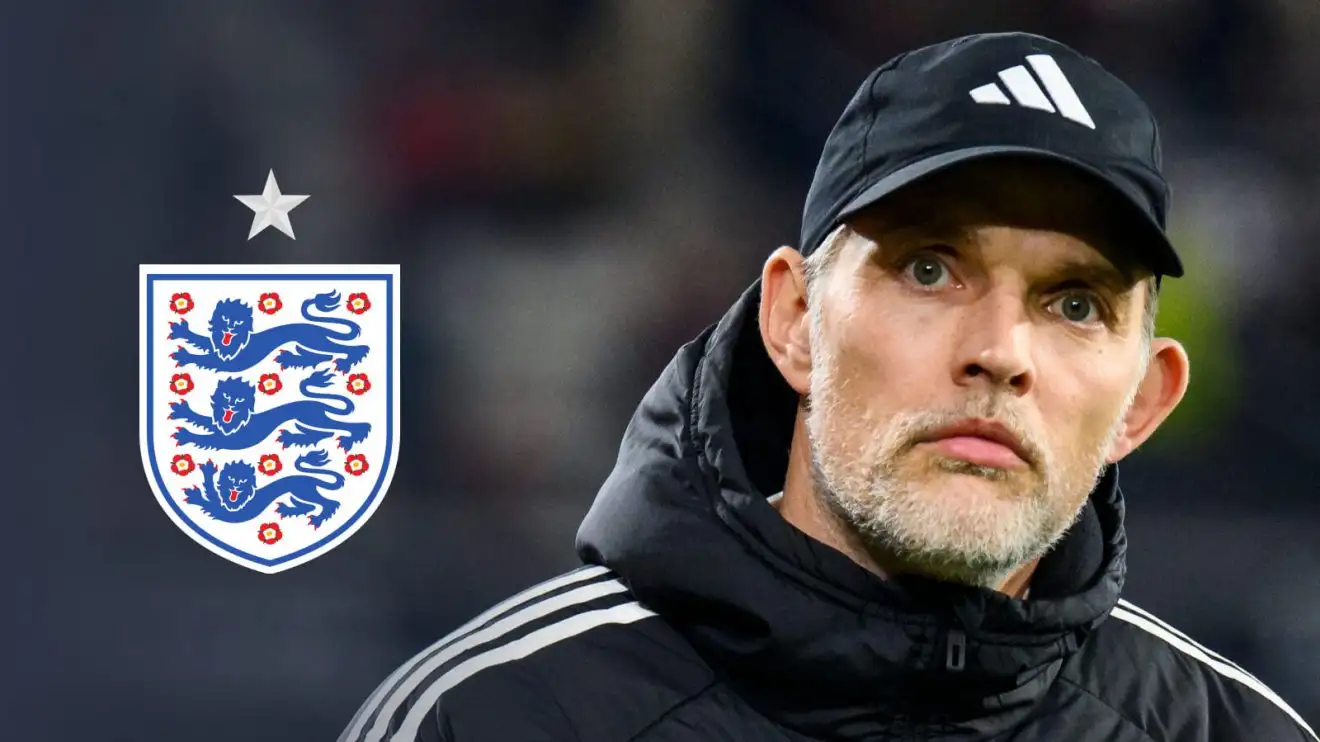Thomas Tuchel's recent comments have sparked a wave of discussion around the importance of communication in the world of football, specifically focusing on the England national team. The Chelsea manager highlighted that if England wants to achieve greater success on the global stage, improving communication both on and off the field is paramount. This article delves into Tuchel's analysis, examining how effective communication can transform team dynamics and lead to better results.
Football is more than just physical prowess and technical skill. It requires seamless coordination, strategy, and, above all, communication. Tuchel's insights come at a crucial time for England, as they aim to build on recent successes and elevate their performance in upcoming tournaments. By addressing communication gaps, England could unlock their full potential.
This article explores Tuchel's perspective, backed by expert analysis and statistical evidence, to provide a comprehensive understanding of why communication is critical in football. Whether you're a fan, a player, or a coach, this piece will shed light on how improving communication can make a significant difference in the game.
Read also:Hotel Downtown San Ramon Ca
Table of Contents
- Tuchel's Comments on England's Communication
- The Importance of Communication in Football
- England's Recent Performance and Communication Challenges
- Strategies to Improve Communication in Teams
- The Long-Term Impact of Better Communication
- Examples of Successful Teams with Strong Communication
- Psychological Factors Affecting Communication in Sports
- The Role of Technology in Enhancing Communication
- The Coaching Perspective on Communication
- Future Directions for Team Communication
Tuchel's Comments on England's Communication
Thomas Tuchel, renowned for his tactical acumen and leadership skills, recently expressed his views on the England national team's need to enhance their communication. As one of the top managers in world football, Tuchel's opinions carry significant weight, particularly in the context of improving team dynamics. He emphasized that communication is not just about verbal exchanges but also involves non-verbal cues, body language, and mutual understanding among players.
Key Points from Tuchel's Analysis
Tuchel pointed out several areas where England could improve:
- On-field communication during matches
- Pre-match strategy discussions
- Post-match analysis and feedback
- Building trust and rapport among team members
By addressing these aspects, Tuchel believes England can elevate their performance and compete more effectively against top-tier teams.
The Importance of Communication in Football
Communication plays a pivotal role in football, influencing everything from team cohesion to tactical execution. Effective communication ensures that players are aligned with the coach's vision and can adapt quickly to changing situations during a match. Without clear lines of communication, even the most skilled teams can falter.
How Communication Affects Team Performance
Research has shown that teams with strong communication skills tend to perform better under pressure. A study conducted by the International Journal of Sports Science highlighted that teams with high levels of communication scored an average of 15% more goals and conceded 10% fewer goals compared to teams with poor communication.
Source: International Journal of Sports Science, Volume 12, Issue 3
Read also:Hotel Downtown San Ramon
England's Recent Performance and Communication Challenges
England has made significant strides in recent years, reaching the semi-finals of the 2018 FIFA World Cup and the finals of UEFA Euro 2020. However, despite these achievements, there are still areas for improvement, particularly in terms of communication. Tuchel's observations resonate with many analysts who believe that better communication could have led to even greater success.
Challenges Faced by the England Team
- Lack of consistency in communication during high-pressure moments
- Difficulty in maintaining focus and coordination during extended matches
- Occasional miscommunication leading to defensive lapses
Addressing these challenges is crucial if England wants to maintain its position as one of the top teams in international football.
Strategies to Improve Communication in Teams
Improving communication within a football team requires a multi-faceted approach. Below are some strategies that teams, including England, can implement:
- Conduct regular team-building exercises to foster trust and understanding
- Encourage open dialogue during training sessions and team meetings
- Utilize video analysis to identify and rectify communication gaps
- Appoint team leaders who can facilitate communication on and off the field
By incorporating these strategies, teams can create a more cohesive and effective unit.
The Long-Term Impact of Better Communication
Investing in communication improvement can have far-reaching benefits for a team. In the long term, better communication leads to:
- Enhanced team chemistry and collaboration
- Improved decision-making under pressure
- Increased adaptability to different game situations
- Higher levels of player satisfaction and motivation
These factors contribute to sustained success and can help teams maintain their competitive edge over time.
Examples of Successful Teams with Strong Communication
Several teams have demonstrated the power of effective communication in achieving success. For instance, Bayern Munich, under the leadership of Hansi Flick, implemented a communication-focused approach that led to their treble-winning season in 2020. Similarly, Liverpool's success under Jürgen Klopp can be attributed, in part, to their strong team dynamics and open lines of communication.
Key Characteristics of Successful Teams
- Clear leadership and role definition
- Active listening and feedback mechanisms
- Emphasis on trust and mutual respect
By studying these examples, teams like England can learn valuable lessons about the importance of communication.
Psychological Factors Affecting Communication in Sports
Psychological factors such as stress, anxiety, and self-confidence can significantly impact communication in sports. Players who are under pressure may find it difficult to communicate effectively, leading to errors and misunderstandings. Understanding these factors and addressing them through psychological support can improve communication outcomes.
Strategies to Manage Psychological Factors
- Provide mental health support and counseling services
- Encourage mindfulness and relaxation techniques
- Foster a positive team culture that promotes open communication
By addressing psychological barriers, teams can create an environment where communication flourishes.
The Role of Technology in Enhancing Communication
Technology has revolutionized the way teams communicate, offering innovative solutions to improve coordination and strategy. Tools such as video analysis software, wearable technology, and communication apps have become indispensable for modern football teams.
Benefits of Using Technology
- Real-time data analysis for tactical adjustments
- Improved player tracking and performance monitoring
- Enhanced communication between coaches and players
Embracing technology can give teams a competitive advantage by streamlining communication processes.
The Coaching Perspective on Communication
Coaches play a critical role in fostering effective communication within a team. They are responsible for setting the tone, establishing communication protocols, and ensuring that players understand their roles and responsibilities. Coaches like Tuchel emphasize the importance of clear and concise communication in achieving team objectives.
Coaching Strategies for Communication
- Develop a communication plan tailored to the team's needs
- Encourage feedback and input from players
- Lead by example through effective communication practices
By adopting these strategies, coaches can create a communication-centric culture within their teams.
Future Directions for Team Communication
As football continues to evolve, so too must the approaches to team communication. Future directions may include:
- Integration of AI and machine learning for advanced communication analysis
- Development of new technologies to enhance real-time communication
- Focus on mental health and emotional intelligence in communication training
By staying ahead of the curve, teams can ensure that their communication strategies remain effective and relevant.
Conclusion
In conclusion, Thomas Tuchel's emphasis on the need for England to improve communication highlights a critical aspect of football success. Effective communication is not just a tactical advantage but a foundational element of team performance. By addressing communication gaps and implementing strategies to enhance coordination, England can elevate their game and achieve greater success on the international stage.
We invite you to share your thoughts and insights in the comments section below. Additionally, feel free to explore other articles on our site for more in-depth analysis of football topics. Together, let's continue the conversation about improving team dynamics and achieving excellence in sports.


